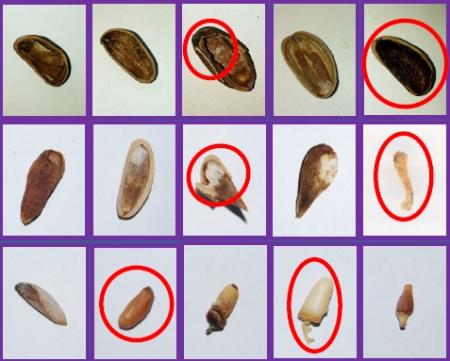
Objective:
The aim of this work was to quantify the extent of the recent decline observed in pine nut and kernel production. For this purpose, we analysed data from the INIA long-term sample plot network for cone and pine nut production in the four main Spanish stone pine regions. Data series for more than a hundred plots since the last century, previous to the arrival of the bug, were compared with the same series after its arrival. Hence, the collapse in kernel per cone yield since can be quantified, the implied main factors identified, and the evidence of L. occidentalis causality implied analysed.
Context:
Mediterranean stone pine (Pinus pinea) cones constitute one of the most relevant NWFP collected in Mediterranean forests, providing high-value edible kernels. In the last decade, a severe decline in the kernel-per-cone yield has been reported over the whole Mediterranean range of the species, in parallel with the rapid expansion of an exotic invasive seed pest, the Western Conifer Seed Bug Leptoglossus occidentalis. Since its first accidental introduction into Italy, pine nut yields have dropped there by more than 80%. Pine cone pickers and processors express concerns about the damage caused by the insect, but little is known about the real effect of the pest on pine nut and kernel crops.
Contacts:
Rafael Calama, rcalama@inia.es, www.inia.es
Sven Mutke, mutke@inia.es, www.inia.es
Further information:
Calama R, Gordo J, Mutke S, Conde M, Madrigal G, Garriga E, Arias MJ, Pique M, Gandía R, Montero G, Pardos M (2020). Decline in commercial pine nut and kernel yield in Mediterranean stone pine (Pinus pinea L.) in Spain. iForest-Biogeosciences and Forestry 13, 251-260. Open access.